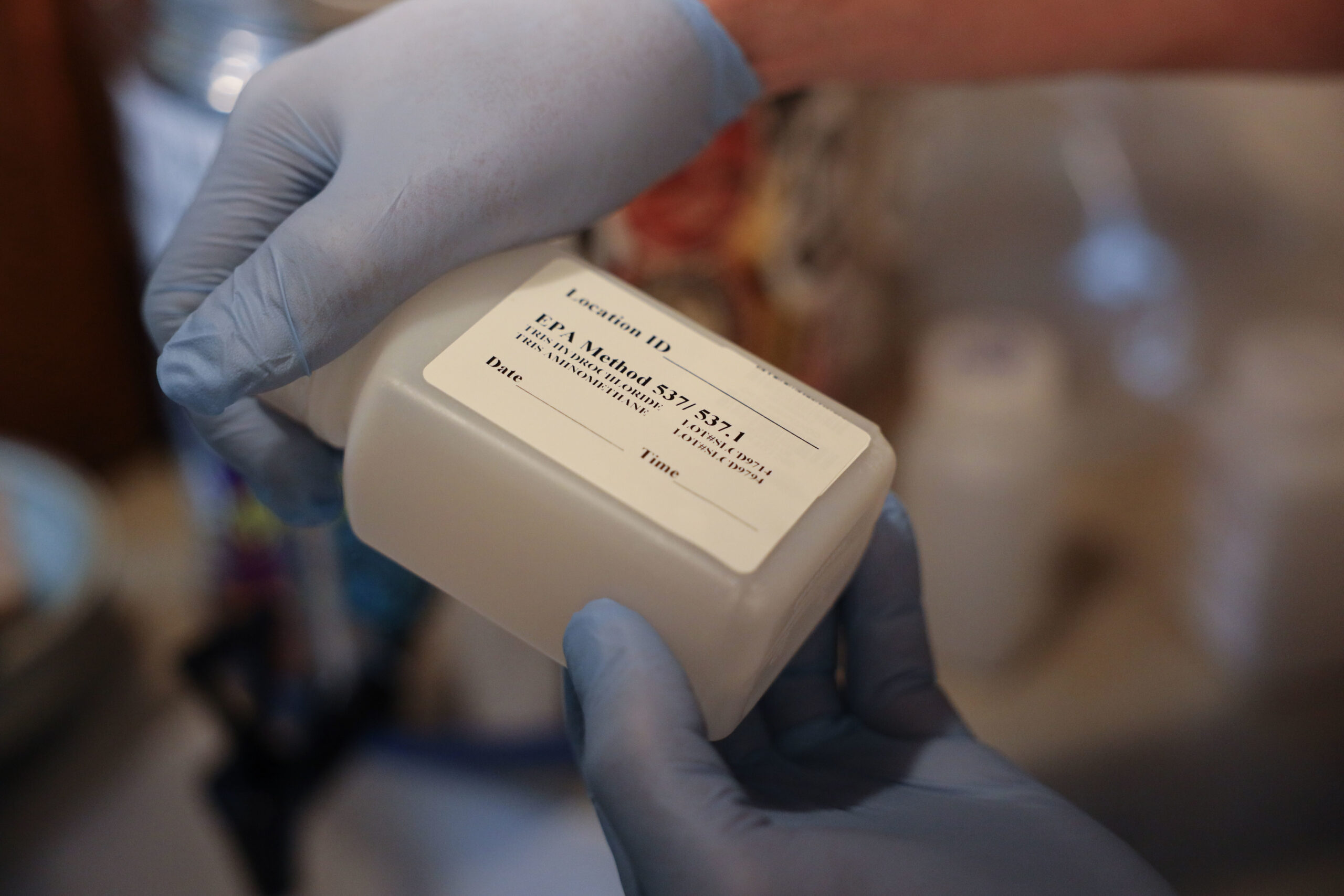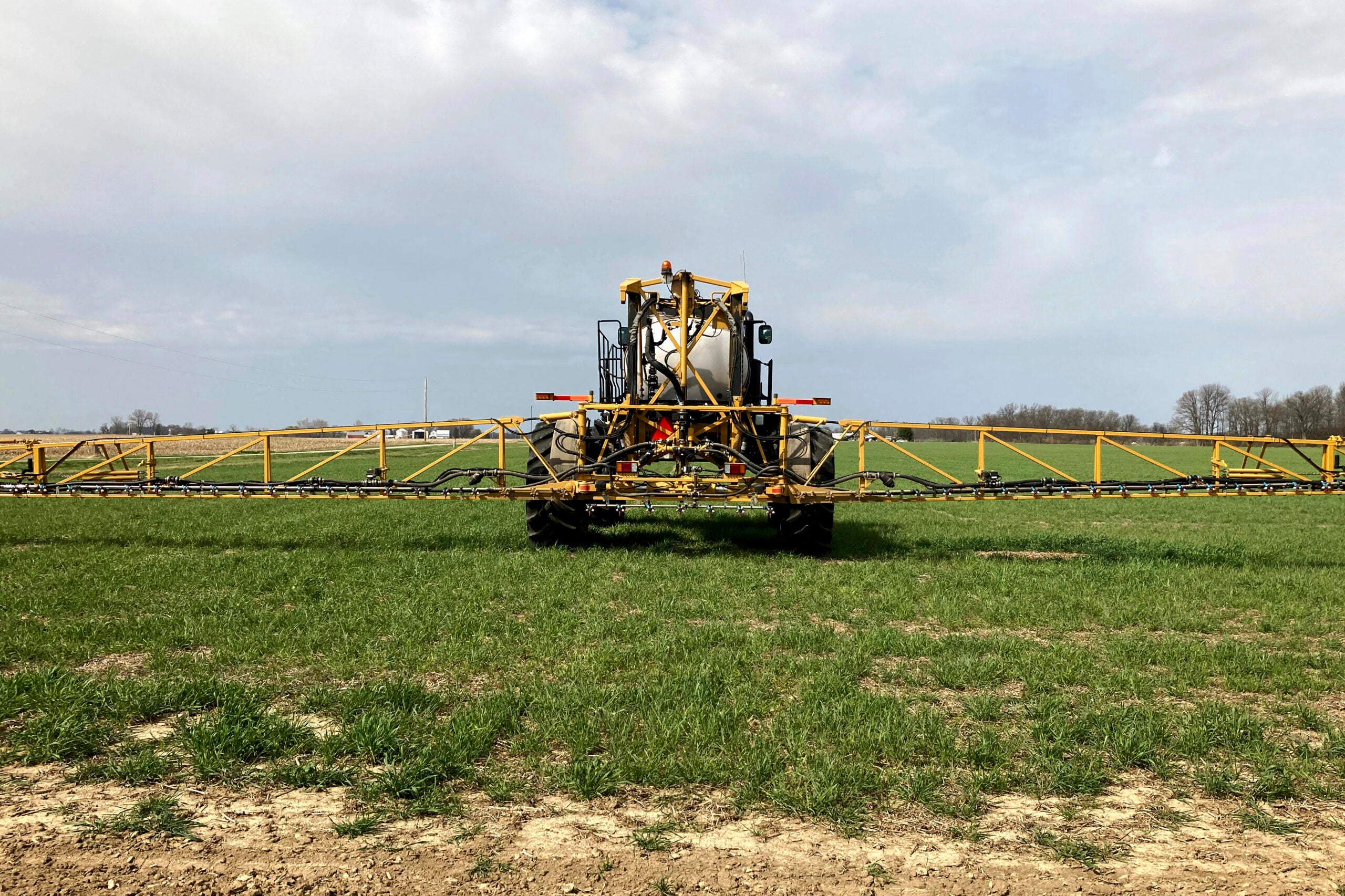The Environmental Protection Agency has listed two PFAS chemicals as hazardous substances, an action that will force businesses and those responsible for pollution to fund cleanup of the chemicals.
The EPA designated PFOA and PFOS as hazardous substances under the Superfund law also known as the Comprehensive Environmental Response, Compensation, and Liability Act.
The listing means that any release of the chemicals in soil or water must be reported. Federal regulators say the listing targets companies who manufactured or used PFAS in their products, as well as federal sites.
“Designating these chemicals under our Superfund authority will allow EPA to address more contaminated sites, take earlier action, and expedite cleanups, all while ensuring polluters pay for the costs to clean up pollution threatening the health of communities,” EPA Administrator Michael S. Regan said in a statement.

News with a little more humanity
WPR’s “Wisconsin Today” newsletter keeps you connected to the state you love without feeling overwhelmed. No paywall. No agenda. No corporate filter.
The Superfund law also provides money for cleaning up contamination when no responsible party exists. The agency doesn’t intend to seek PFAS cleanup or costs from farmers, water utilities, municipal airports, fire departments and landfills.
The Wisconsin Department of Natural Resources is actively investigating PFAS contamination at around 100 sites in the state, according to its website tracking environmental cleanups.
Christine Sieger, director of the DNR’s Bureau of Remediation and Redevelopment, said in a statement that most contaminated sites in Wisconsin are addressed under state authority rather than federal law.
“As such, ensuring the DNR has all the regulatory tools available to respond to contamination as well as support Wisconsin communities struggling with contamination with funding and resources remains crucial,” Sieger said. “For the limited group of sites that are in the Superfund program, the federal program is important.”
Communities could be designated Superfund sites for PFAS pollution
PFAS, or perfluoroalkyl and polyfluoroalkyl substances, have been used by industry in products ranging from nonstick cookware to firefighting foam since the 1940s. Most manufacturers voluntarily phased out use of the chemicals, but they remain in limited use and don’t break down easily in the environment. Multiple studies have linked the chemicals to serious health effects that include increased risk of kidney and testicular cancers, thyroid disease and fertility issues. They have also been tied to reduced response to vaccines.
The DNR said the EPA’s designation of PFAS as hazardous substances could provide resources and lead to areas being designated as a Superfund site to help clean up contamination. The agency said the towns of Stella and Peshtigo are currently under review as to whether they qualify as Superfund sites due to PFAS contamination.
The town of Peshtigo in northeastern Wisconsin has struggled for years with PFAS contamination of private wells stemming from Tyco Fire Products’ fire training facility in Marinette. Last week, the company reached a $750 million settlement with communities that detected the chemicals in their public water supplies.
Two years ago, Peshtigo residents petitioned the EPA to review the suspected release of hazardous substances under the Superfund law due to PFAS contamination tied to the firefighting foam manufacturer, which announced it will end use of foam containing the chemicals by June.
Cindy Boyle, who filed the petition, said the EPA’s designation renews hope that the town has a path forward to clean up PFAS contamination.
“I’m really ready for the work ahead of us to make sure that the EPA keeps the town of Peshtigo, city of Marinette, fully on their radar, doing right by the residents in this area, and holding our responsible party accountable for any costs associated with it,” Boyle said.

Amid lawsuits, Tyco says it’s led best practices to address PFAS
Two years ago, Wisconsin Attorney General Josh Kaul sued Tyco and Johnson Controls for violating the state’s hazardous spills law, adding the company hasn’t done enough to clean up PFAS contamination.
Tyco and its parent company Johnson Controls International have refused the DNR’s demands to conduct more sampling and investigation of contamination in a broader area around its facility. Tyco has said data doesn’t indicate PFAS detections are related to the company’s fire training center.
Trent Perrotto, a Johnson Controls spokesperson, said Tyco has led the way in best practices to address PFAS even though it’s not a PFAS manufacturer, but it recognizes the chemicals are in countless commercial and industrial products.
“Our remediation work in Marinette eliminating PFAS from the ground water is a model that many across the globe can follow. Science-based regulations that engage the best experts are important in moving us all forward,” Perrotto said in a statement. “We will review this rule in detail as we continue to set the standard for what good PFAS action looks like.”
Tyco and Johnson Controls have built a system that’s treated 97 million gallons of contaminated groundwater through last November, according to the DNR. The system has reduced levels of the chemicals from as high as 18,000 parts per trillion to between 1 and 21 parts per trillion for PFOA, which are below state drinking and surface water standards.
Boyle and another Peshtigo resident petitioned the EPA to examine the area as a potential Superfund site after the Wisconsin Natural Resources Board failed to pass groundwater standards for PFAS.

DNR faces pushback on efforts to address PFAS
Last fall, the DNR announced it was abandoning its second attempt to craft regulations for the chemicals in groundwater due to a 2017 law aimed at preventing excessive compliance costs.
Since then, both Republicans and Democrats in the Legislature introduced bills to allow the DNR to continue work to set standards for the chemicals in groundwater. But the proposals failed to pass before the end of the legislative session.
Residents living with PFAS pollution have voiced frustration over the delay in setting standards. They along with environmental groups have accused Republican lawmakers and industry groups of seeking to undermine the DNR’s authority to address PFAS under the state’s spills law that deals with hazardous substances.
“DNR’s authority under the spills law has come under attack, and in recent years, through a variety of sources, but certainly in legislative proposals, and then the courts,” said Rob Lee, an attorney with Midwest Environmental Advocates. “We would view those as taking a step backward. We need to let DNR continue to do its job.”
Democratic Gov. Tony Evers recently vetoed a Republican bill that would have provided grants to communities and landowners to address PFAS contamination, citing limits on the DNR’s authority to test for and clean up the chemicals. Evers and GOP lawmakers remain at odds over how to spend $125 million set aside under the current budget to address PFAS contamination.
At the same time, Wisconsin Manufacturers and Commerce has sued the DNR over its authority to force businesses to clean up the chemicals. Last month, a state appeals court upheld a Waukesha County judge’s ruling that state regulators must first list PFAS as hazardous substances through the state’s rulemaking process before requiring businesses to clean up the chemicals.
Wisconsin Public Radio, © Copyright 2025, Board of Regents of the University of Wisconsin System and Wisconsin Educational Communications Board.





